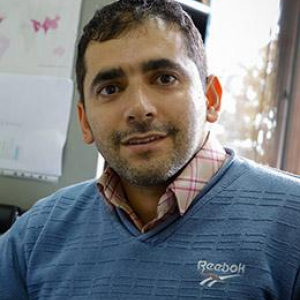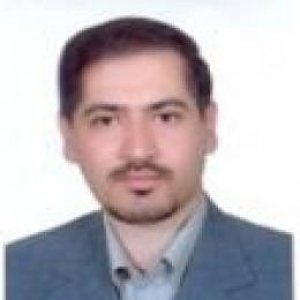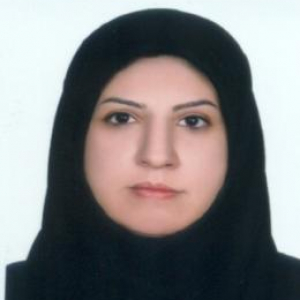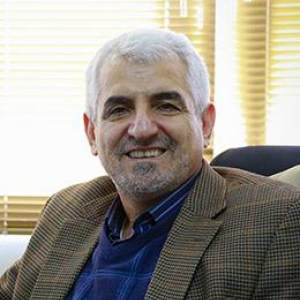Overview
Plant production and genetics department started its activity in 1980 to improve farming systems and agricultural products by educating and training students to prepare them for careers in farms, industry, government and academic circles. Its mission is to expand and transfer knowledge of agronomy and plant breeding to continuously improve factors such as the safety, quality, harvest index, and economic value of crops. Faculty members are mainly involved in teaching and investigating different fields of plant sciences with the emphasis on new advances in this realm. The department provides a range of research laboratories, as well as specialized devices for analyzing crops and agronomic products supporting educational programs at both undergraduate and graduate levels. Some 20 faculty and staff members supports a body of almost 100 students. At undergraduate level, department offers a general program in plant production and genetics. The graduate program is specialized into agronomy and plant breeding with masters and PhD curriculum offered in both fields. The main goals of graduate programs are to train students for professional careers enabling them to manage research programs in the area of crop production, crop physiology and also classical and molecular breeding. Research is mainly focused on cereals, forage crops, oilseed crops as well as industrial and medicinal plants to improve yield and quality of production. Sustainability and environmental issues are highly considered in this process.
Degree Programs
|
Different Disciplines in Department of Plant Production and Genetics |
|
|
Bachelor of Science (BSc) |
Plant Production and Genetics |
|
Master of Science (MSc) |
Agrotechnology – Crop Physiology |
|
Plant Breeding and Biotechnology |
|
|
PhD |
Agrotechnology – Crop Physiology |
|
Plant Breeding and Biotechnology |
|
Reasons to Study at Department of Plant Production and Genetics in IUT
The IUT department of Plant Production and Genetics is nationally a leading entity in research, teaching and delivery of different aspects of plant sciences, from lab to field, rangelands and beyond. We are committed to provide quality higher education considering the needs of agro-industries and society. Having a team of highly qualified faculty members, the department addresses the national and regional agricultural, ecological and environmental needs through innovative science and high quality active undergraduate and graduate education. Studying at department of Plant Production and Genetics empowers individuals to function professionally in different realms of plant sciences including genetics, genomics, breeding, biodiversity, plant physiology, plant nutrition, weed science, ecosystem management and restoration and cropping systems.
Honors and Awards
The IUT department of Plant Production and Genetics is nationally ranked among the top five plant science departments owing to its high academic standards. Many faculty members at the department are recognized for teaching and research awards granted at university, state and national levels.
Programs Structure
For undergraduate program to be completed, students are required to take a total of 140 credit hours divided in a variety of specialized plant science courses. The program offer some degree of flexibility in about 20 credit hours elective courses.
At postgraduate program, the MSc is offered in two subdivisions of Agronomy and Plant Breeding. MSc must be completed no longer than six semesters and students are required to take 24 course units plus 6 units of thesis study that involves a combination of field and lab work. Both programs are thesis option with enough suppleness to allow students take courses that are more linked to their research.
The program at PhD level is also offered in two subdivisions of Agronomy and Plant Breeding, where students should take 18 credit units in course work and 15 units of dissertation. PhD dissertations are usually initiated very early in the program and the findings are expected to be published in high quality scientific journals. After students complete coursework they are required to take and pass a comprehensive exam before they are allowed to continue in the program.
Programs Objectives
Programs at IUT Plant Production and Genetics Department are designed to deliver high quality education and training to students preparing them for professions in farms, industry, administration and academic world. Improving farming systems and agricultural products by knowledge acquired through scientific methods is our main objective.
Research Area
Considering Iran’s geographical location, being in an arid and semi-arid region of the world, a considerable part of research in Plant Production and Genetics Department are oriented toward crop production under water limitations and other abiotic stresses. In general crop physiology, biometrical genetics, agroecology, plant symbiotic interactions, and breeding methods coupled with new techniques of agrotechnology and biotechnology are applied to different crops including cereals, oil seeds, cool season grasses and medicinal plants. Many wild relatives of crops are being explored through hybridization and gene transfer in recent years. Aspects of plant microbe interactions are being studied in relation to crop production under abiotic stresses.
Projects and Income
The main source of research expenses comes from university resources and state, national and international grants. A reasonable set of budget is allocated for each graduate student by university which is usually augmented by student’s main supervisor research grants.
Interdisciplinary Approaches
Innovative interdisciplinary research are highly encouraged and there are degrees of freedom for students to define their graduate thesis and dissertation to advance research at the interface between agronomy, plant genetics, soils, biosystems, food sciences, feeds and water sciences to help address the challenges of ecologically sustainable agriculture. Plant Production and Genetics Department is highly supported by eight other disciplines at the College of Agriculture in this respect.








| Student name | Thesis Title | Supervisor name |
| Narges gharaghaniporr | Transcription Analysis of Response to Salt Sress in Wild (Hordeum vulgare ssp spontaneum) and Cultivated (H. vulgare ssp. vulgare) Barley by RNA-seq Method |
Dr. Ahmad Arzani Dr. Mehdi Rahimmalek |
| Mohammad hadi taleb | Genetic study of traits related to persistence, post-drought recovery and summer dormancy in tall fescue | Dr. Mohammad Mahdi Majidi Dr. Sayed Ali Mohammad Mirmohammady Maibody |
| Soraia Mahdavi | Genetic and molecular analysis of yield, physiological and grain quality traits in bread wheat under terminal heat stress |
Dr. Ahmad Arzani Dr. Sayed Ali Mohammad Mirmohammady Maibody |
| Shariefeh Nikzad | Evaluation of Drought Tolerance and Association Analysis of related Molecular Markers in Different Genotypes of Eruca sativa L. |
Dr. Seyed Ali Mohammad Mir mohammady Maibody Dr. Mohammad Hossein Ehtemam |
| Baran Najafipour | Evaluation of NBP populations from crosses between wild and cultivated barley under drought stress conditions |
Dr. A. Mirlohi Dr. M. M.Majidi |
| Masoud Motalebnejad | Investigation the physiological and biochemical mechanisms of allelopathy of some perennial grasses under drought stress | Dr. Hassan Karimmojeni |










